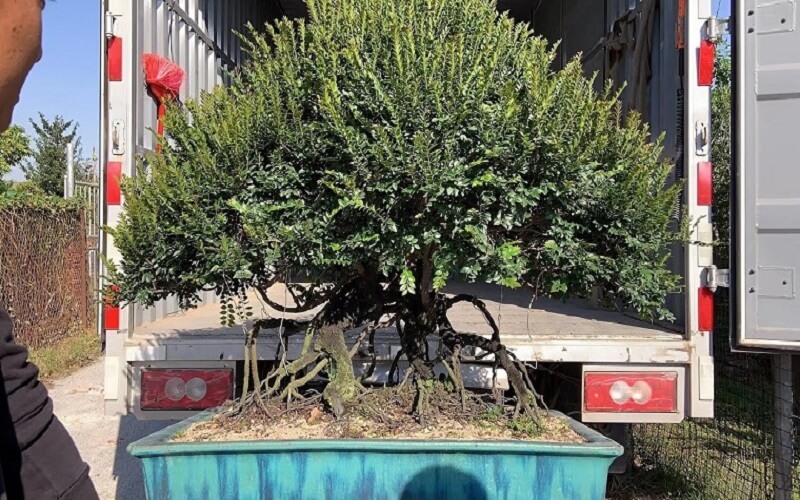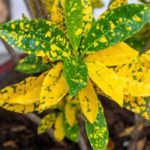The Black Pine, also known as the Japanese Black Pine, is a popular ornamental tree among gardeners due to its unique appearance, symbolic significance, and practical uses. Let’s explore the characteristics, meaning, and care instructions for this fascinating tree!
1 What is the Black Pine Tree?
Origin and Significance of the Black Pine Tree
The Black Pine, or Pinus thunbergii, is a species of pine native to coastal areas of Japan, South Korea, and China. It is a long-lived tree with a distinctive dark bark and a slow to moderate growth rate. The needles are arranged in bundles of two, and the cones are small and brown, measuring around 3-6 cm in length. The Black Pine is adaptable to various soils and prefers full sun to partial shade.
 Black Pine, a versatile and aesthetically pleasing tree
Black Pine, a versatile and aesthetically pleasing tree
The Black Pine has cultural and symbolic significance in East Asian countries. In Japan, it is revered for its strength and longevity, often associated with resilience and perseverance. The tree’s ability to thrive in harsh coastal conditions has earned it a place in traditional art and literature, symbolizing endurance and beauty.
Ecological and Economic Importance
Black Pines play a crucial role in the ecosystem by providing food and habitat for various species. The seeds are a valuable food source for birds and small mammals, while the dense foliage offers shelter and protection. Additionally, the trees have economic significance, particularly in the timber industry. The strong and durable wood is used for construction, furniture, and wood carving.
 Black Pine cones and needles
Black Pine cones and needles
In recent years, the Black Pine has gained popularity in the bonsai community due to its aesthetic value and adaptability to container gardening. Its ability to withstand pruning and shaping makes it a favorite among bonsai enthusiasts.
2 Symbolism and Cultural Significance
In East Asian cultures, the Black Pine holds symbolic meanings that vary across regions. In Japan, it is associated with longevity, strength, and resilience. The tree’s ability to withstand harsh conditions, including strong winds and salt spray, has led to its use as a symbol of endurance and perseverance.
 Black Pine bonsai, a symbol of endurance and beauty
Black Pine bonsai, a symbol of endurance and beauty
In China, the Black Pine is believed to possess spiritual powers, often associated with warding off evil spirits and bringing good fortune. It is considered a symbol of longevity and is often planted near homes or temples to invite positive energy and protect against negative influences.
Additionally, the Black Pine has cultural significance in traditional medicine. Various parts of the tree, including the bark, needles, and cones, are used to treat a range of ailments. The pine resin, in particular, is valued for its antiseptic and anti-inflammatory properties.
3 Feng Shui and Black Pine Trees
In the practice of Feng Shui, the Black Pine is believed to have a balancing effect on the surrounding environment. The tree’s strong and sturdy nature is associated with the Wood element in Feng Shui, symbolizing growth, flexibility, and vitality.
 Black Pine trees represent the Wood element in Feng Shui
Black Pine trees represent the Wood element in Feng Shui
Placing a Black Pine tree in the east or southeast direction of your home or garden is thought to enhance positive energy and promote growth and prosperity. The tree’s vibrant green needles and upward-reaching branches are believed to attract auspicious chi, bringing good luck and abundance.
However, it is important to note that the placement should consider the specific bagua area of your space and the Five Elements theory to ensure a harmonious balance.
4 Caring for Your Black Pine Tree
Planting and Maintenance
Black Pine trees are relatively low-maintenance and adaptable to a range of conditions. Here are some tips for successful planting and care:
 Techniques for planting and caring for your Black Pine
Techniques for planting and caring for your Black Pine
- Choose a sunny location with well-drained soil. Black Pines prefer full sun but can tolerate partial shade, especially in hotter climates.
- When planting, ensure the root ball is slightly above ground level to promote better drainage.
- Water regularly during the first year to establish a strong root system. Black Pines are drought-tolerant once established but benefit from occasional deep watering during extended dry periods.
- Apply a layer of mulch around the base of the tree to retain moisture and prevent weed growth.
- Prune in late winter or early spring to shape and remove any dead or diseased branches. Black Pines respond well to pruning and can be trained into various styles, including bonsai.
- Fertilize in early spring with a slow-release fertilizer formulated for conifers.
- Monitor for pests and diseases, such as pine needle scale and pine shoot beetle. Treat with appropriate insecticides or fungicides if necessary.
Common Issues and Solutions
– Needle Drop: Black Pines may experience needle drop during periods of stress, such as drought or extreme temperatures. Ensure adequate watering and provide protection from harsh winds or excessive heat.
– Yellowing Needles: Yellowing needles can indicate a nutrient deficiency, particularly nitrogen. Apply a nitrogen-rich fertilizer or compost to improve soil fertility.
– Pest Infestations: Black Pines are susceptible to pests like pine needle scale and mealybugs. Regularly inspect your tree and treat with appropriate insecticides if infestations occur.
5 Where to Buy and Cost
You can purchase Black Pine trees from local nurseries or online garden centers. The cost varies depending on the size and age of the tree. Younger, smaller trees may range from $40 to $100, while larger, more established trees can cost several hundred dollars or more, especially for bonsai specimens.
 Black Pine tree as an indoor decoration
Black Pine tree as an indoor decoration
6 Aesthetic and Decorative Uses
- Bonsai: Black Pines are popular choices for bonsai due to their adaptability, attractive foliage, and ability to withstand pruning. They can be shaped and trained into various styles, making them a favorite among bonsai enthusiasts.
- Landscaping: Black Pines make excellent ornamental trees for gardens and landscapes. Their dense, symmetrical growth habit and attractive foliage add visual interest and texture to any outdoor space.
- Privacy Screening: The dense foliage of Black Pines makes them ideal for creating natural privacy screens or windbreaks. Planted in a row, they can provide a beautiful and effective barrier.
- Container Gardening: Black Pines can be grown successfully in containers, making them suitable for patios, balconies, or other outdoor living spaces. Choose a large, well-drained container and ensure regular watering.
The Black Pine is a remarkable tree that offers a combination of beauty, symbolism, and practical uses. Whether you’re a gardener, a bonsai enthusiast, or simply looking to enhance your outdoor space, the Black Pine is a wonderful addition to consider.
2023 Lunar New Year Gift Ideas for Older Family and Friends
As 2021 approaches, families worldwide are gathering to celebrate the special bond between grandparents and their grandchildren. To show their love and admiration, these thoughtfully chosen gifts will bring a smile to the face of the elderly. Here, we have compiled a list of the 13 most meaningful Tet presents that can bring joy to our beloved grandparents.



































